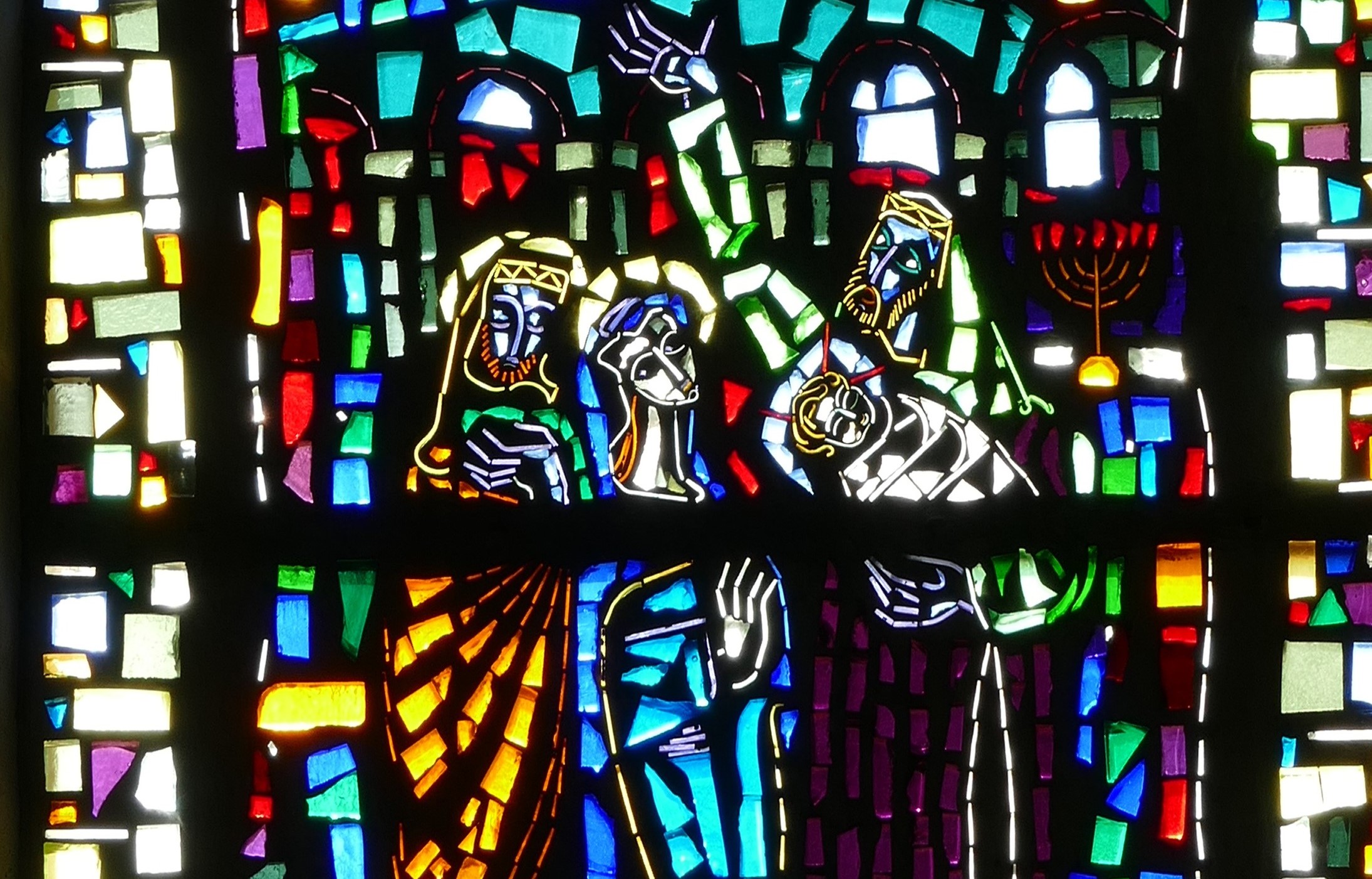
Luke 2:29-32
Narrative Lectionary 343
29 “Master,A now you are dismissingB your servantC in peace,D
according to your word;E
A “master” = despotes. Perhaps related to “servant” in v29. 10x in NT. Perhaps from deo (see note C below). This is lord, master, despot, sovereign Lord. It is an authority who has unrestricted power and jurisdiction.
B “dismissing” = apoluo. From apo (from, away from) + luo (to loose, release, untie; figuratively, to break, destroy, or annul; releasing what had been withheld). This is letting go, setting free, or releasing. So, it can be to discharge, dismiss, divorce, pardon, or set at liberty.
C “servant” = doulos. Perhaps from deo (to tie, bind, fasten, impel, compel; to declare something against the law or prohibited). This is used for a servant or for a slave, enslaved. It refers to someone who belongs to someone else. But, it could be voluntary (choosing to be enslaved to pay off debt) or involuntary (captured in war and enslaved). It is used as a metaphor for serving Christ. Slavery was not inherited (i.e. the children of slaves were not assumed to be slaves) and slaves could buy their way to freedom. Slavery was generally on a contractual basis (that is for the duration of how long it took you to pay your debt and/or save up enough money to buy your freedom).
D “peace” = eirene. Perhaps from eiro (to join, tie together to form a whole). This is one, peace, quietness, rest, peace of mind, harmony. Peace was a common farewell among Jews (i.e. shalom) and this well-wishing included a blessing of health and wholeness for the individual. This word also indicates wholeness and well-being – when everything that is essential is joined together properly. This is peace literally or figuratively. By implication, it is prosperity (but not in the sense of excessive wealth. Prosperity would have meant having enough from day to day.)
E “word” = rhema. From rheo (to speak, command, make, say, speak of); from ereo (to all, say, speak of, tell; denotes ongoing speech). This is word, which implies a matter or thing spoken, a command, report, promise, thing, or business. Often used for narration, commands, or disputes.
30 for my eyesF have seenG your salvation,H
F “eyes” = ophthalmos. From optanomai (to appear, be seen by). This is eye or sight. It is used figuratively for the mind’s eye, a vision, or for envy.
G “seen” = horao. To see, perceive, attend to, look upon, experience. Properly, to stare at and so implying clear discernment. This, by extension, would indicate attending to what was seen and learned. This is to see, often with a metaphorical sense. Can include inward spiritual seeing.
H “salvation” = soterios. 5x in NT. From soter (a savior, deliverer); from sozo (to save, heal, preserve, or rescue; taking someone from danger to safety; delivering or protecting literally or figuratively); from sos (safe, rescued, well). This is salvation, defender, something or someone saving.
31 which you have preparedI in the presenceJ of all peoples,K
I “prepared” = hetoimazo. From hetoimos (make ready, be ready because of being prepared, standing by, adjusted; ready to meet some opportunity or challenge). This is to prepare or provide.
J “presence” = prosopon. Related to “seen” and “eyes” in v30. From pros (at, towards, with) + ops (eye, face) {from optanomai (see note F above). This is the face, surface, or front. It can imply presence more generally.
K “peoples” = laos. This is the people or crowd – often used for the chosen people. This is where the word “laity” comes from.
32 a lightL for revelationM to the GentilesN
and for gloryO to your people Israel.”P
L “light” = phos. From phao (to shine or make visible, especially with rays of light); from the same as phaino (to bring light, cause to appear, shine, become visible or clear). This is light, a source of light, fire, or radiance. This is light with specific reference to what it reveals. It is luminousness whether natural or artificial, abstract or concrete, literal or figurative.
M “revelation” = apokalupsis. 18x in NT. From apokalupto (properly to uncover; revealing something that was hidden or obstructed; particularly refers to revealing the essence of something; to make plain or manifest); {from apo (from, away from) + kalupto (to cover, hide, conceal; figuratively, to keep hidden or secret) {related to kalube (hut, cabin)}. This is uncovering, unveiling, appearing, manifestation, or revelation. This is where the word “apocalypse” comes from.
N “Gentiles” = ethnos. Probably from etho (a custom or culture). This is people who are united by having similar customs or culture. Generally, it is used to refer to Gentiles. This is a tribe, race, nation, or Gentiles in general. This is where the term “ethnicity” comes from.
O “glory” = doxa. From dokeo (to have an opinion, seem, appear, suppose; a personal judgment; to think); from dokos (opinion). This is literally something that evokes a good opinion – something that connects to our understanding of intrinsic worth. The ultimate expression of this is, of course, God and God’s manifestation. So, this is opinion, honor, and dignity, but also praise, glory, renown, and worship.
P “Israel” = Israel. From Hebrew Yisrael (God strives or one who strives with God; new name for Jacob and for his offspring); {from sarah (to persist, exert oneself, contend, persevere, wrestle, prevail) + el (God or god)}. This is Israel the people and the land.
Image credit: “Simeon” at the Convent of Bischenberg in the Chapel of Our Lady of Seven Sorrows in Alsace in Bischoffsheim, France.
